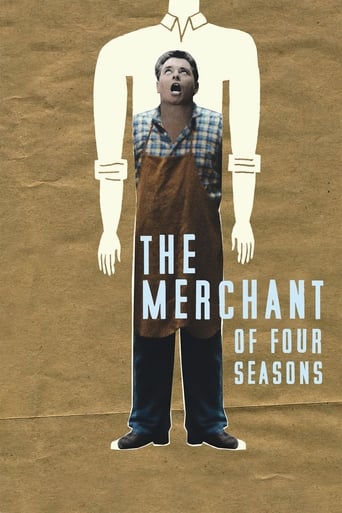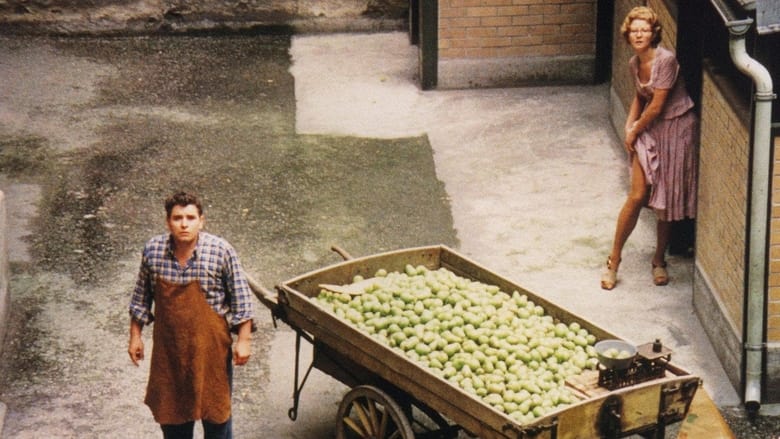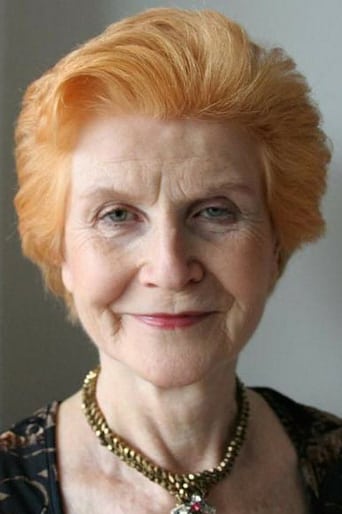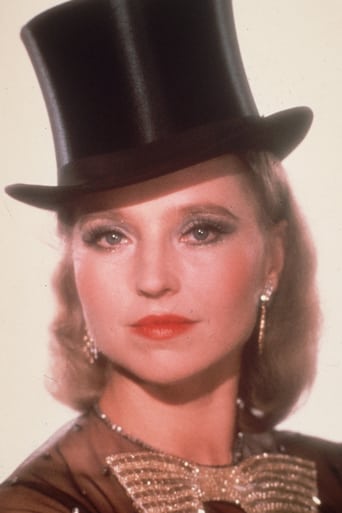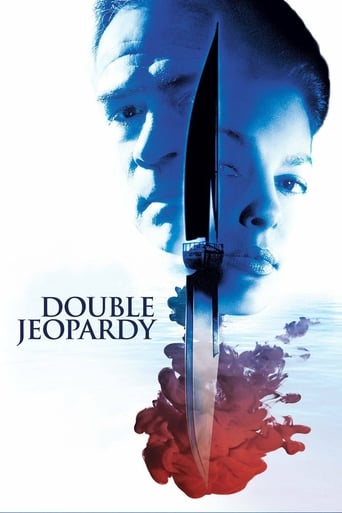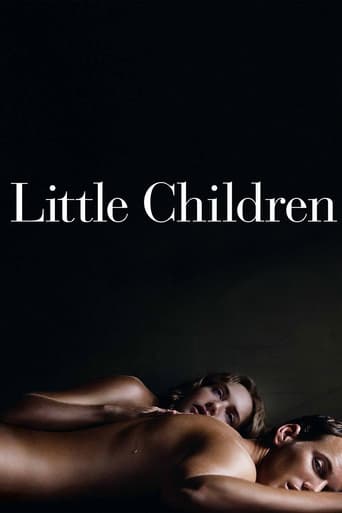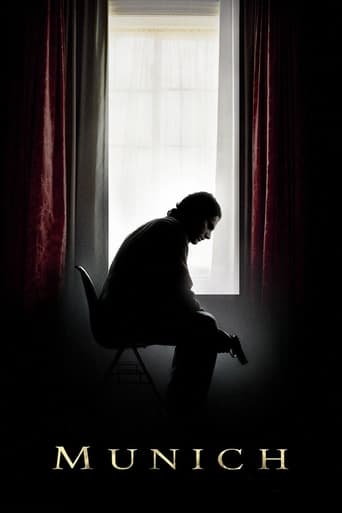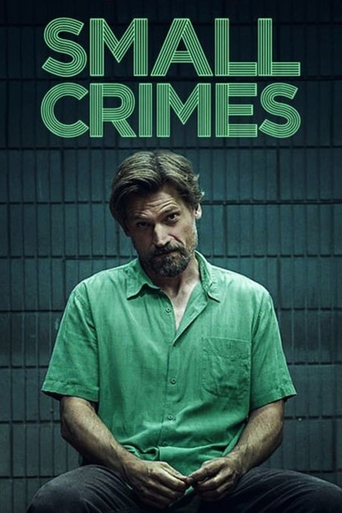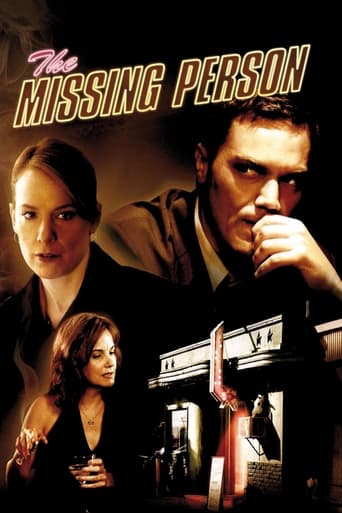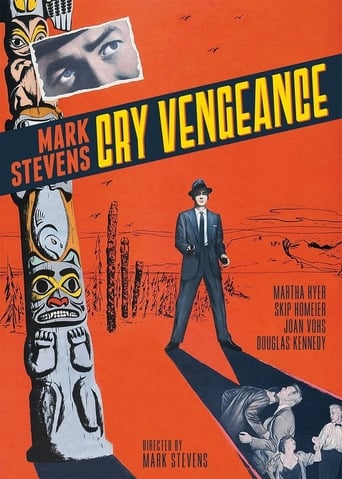The Merchant of Four Seasons (1972)
Hans is a street fruit peddler and born-loser. His choice of career upsets his bourgeois family, causing him to turn to drinking and violence. After recovering from a debilitating heart attack, his business finally begins to take off. However the more he becomes a credit to his family, the more depressed he becomes.
Watch Trailer
Cast


Similar titles
Reviews
Highly Overrated But Still Good
Good films always raise compelling questions, whether the format is fiction or documentary fact.
It is an exhilarating, distressing, funny and profound film, with one of the more memorable film scores in years,
A clunky actioner with a handful of cool moments.
This 1971 film would be the turning point in Rainer Werner Fassbinder's career. A scathing portrait of a man crushed by societal pressures. The film purposely mixes 1970's with 1950's Germany in which the story takes place. Fassbinder also applies his staged and often stilted style which actually works in the film's favor. His two leading actors are outstanding, Hans Hirschmüller and Irm Hermann manage to push beyond the artifice to something very real. It has been said that much of this film's success is owed to Fassbinder's inspiration ultimate meeting with Douglas Sirk. While this may be the case, this film is astoundingly unique. The director would go on to make even more potent films, but this was the first fully-formed vision. A film not to be missed.
Hans (Hans Hirschmüller) is a street fruit peddler and born-loser. His choice of career upsets his bourgeois family, causing him to turn to drinking and violence. After recovering from a debilitating heart attack, his business finally begins to take off. However the more he becomes a credit to his family, the more depressed he becomes."The Merchant of Four Seasons" was a turning point in Fassbinder's career, marking his entry into the international film arena. It is considered by film critics to be one of Fassbinder's best films. For me, it was alright but not what I would consider among his best. Number one would have to be "Ali", and it is hard to dismiss "World on a Wire".Granted, I have not perused the Criterion DVD, and maybe I just do not understand the complete context of this film. Another time?
I have always found Fassbinder fascinating, but this film drags.First, Hans Hirschmuller is a strikingly unattractive protagonist. Sometimes that kind of casting can be interesting, but in this case the camera dislikes him. I recoiled from closeups of Hans's pimpled, pockmarked, dumpy body.In many cases, a guy who receives unsolicited oral sex from a sexy stranger would be viewed as lucky. Not in Fassbinder's universe. This come-on, in the police headquarters where Hans worked as a cop, was the beginning of the end for woebegone Hans. He squanders his wife's trust, hates and beats her for despising him back, and rejects floozies who inexplicably proposition him -- all the while descending into a morass of clinical depression.Hans's wife Irmgard, played by the mesmerizing Irm Hermann (a non-actress whom Fassbinder discovered while she was working as a secretary) is way more compelling. However, she too is reptilian in this film in which no one can be trusted and the world is a viper's nest of people chasing fleeting desires. (Irmgard's dowdy housewife nevertheless displays suntan lines -- very incongruous!) Some of the ins and outs of the plot are needlessly tedious. Who really wanted to watch interviews with five or six wannabe fruit hawkers? Though I'm glad I saw this film -- part of a double feature at a trendy Tribeca venue -- it so tired me out at end of a long workday here in NYC that I passed on Fassbinder's made-for-TV "Fear of Fear."
The Merchant of Four Seasons established a number of trademarks, both visual and thematic, that would become further refined and much more expressive in the Fassbinder films to follow. Here, for example, we see the action unfold through the eyes of a tortured anti-hero and his literally abused wife, as they strive to put aside petty differences, the ghosts of the past and the animosity of friends, family and neighbours, in an attempt to overcome the monotonous misery of everyday life. However, as with most Fassbinder films, the daily grind often ends up being too severe - and generally things never go to plan - leaving most of the characters feeling damaged, depressed, worthless or worse. With that in mind, it would be easy to dismiss Fassbinder's work as nothing more than misanthropic self-pity, yet to do so would require us to disregard the three-dimensional characters, the meaningful dialog and the heart that seems to beat at the centre of all of his films.Unlike many other director's who have mined the social-realist path, Fassbinder never looks down on his characters to gloat or heap scorn, and instead, seems to have a genuine warmth and love for then. That said, he respects the fact that such real-life archetypes can often fall foul of the system, ending up as nothing more than damaged shells forced to enter into a downward spiral that takes time, faith and self-belief to truly escape from. The central notion of The Merchant of Four Seasons then, involves a character that has fallen into one such spiral that has crushed his very will to escape. So, like the characters in later works like Fox and his Friends, Mother Küsters Goes to Heaven and In A Year With 13 Moons, Hans Epp becomes a character that has, through circumstance and upbringing, been led towards an ultimate downfall that he both accepts and embraces. As you can imagine from such a bare-bones description, The Merchant of Four Seasons is bleak stuff, offering an honest and at times rather ugly depiction of failure, despair, contempt and alienation.Fassbinder attempts a purposely fractured narrative with The Merchant of Four Seasons, beginning the film with a scene in which Hans returns from a stint in the Foreign Legion. He expects a heroes welcome, but instead, is chastised by his mother for waking her up at such an ungodly hour, before lamenting the fact that the young man dragged along by Hans to fight by his side has been killed, whilst her errant son has returned ("the good die young, and people like you come back" she says, before closing the door in his face). The scene establishes the relationship between Hans and his mother perfectly, and will go some lengths towards explaining Hans's often quite violent relationship with his own wife Irmgard. Later scenes, presented in similarly fragmented flashbacks, inform us of Hans's past as a promising scholar before he dropped out to join the Legion, his dismissal from the police force after accepting sexual favours from a prostitute, the humiliation in the eyes of his family and friends of having to become a common fruit vendor, and his inability to woo the great love of his life.Like many of Fassbinder's key characters, Hans remains a tragic anti-hero. On the one hand we feel pity (and to some extent empathy) for this short, overweight character, so unfortunate in life that he's even ended up married to a tall slender woman who's very appearance can only exaggerate his physical shortcomings, but at the same time he comes across as quite vile and detestable. The scene in which the drunken Hans viciously beats his wife - whilst his young daughter tries desperately to protect her mother - is captured in a static medium shot that goes on for so long that the actions run from the heartbreaking, to the comedic, to the tragic and beyond!! Even when Hans seems to be getting his life back together, finally winning the respect of his family and even establishing a successful working relationship with his old Legion pal Harry, there's still something missing. Fassbinder's point seems to be that the failures of our early life can only dictate the direction of our adult life, whilst one scene in particular, in which Hans's daughter Renate asks her aunt Anna if her father is going to die, seems to sum up the soul of the film perfectly, with Anna replying "he will live as long as he wants to live".Ultimately, The Merchant of Four Seasons is a film about a character resigned to a life from which there is no escape... a life in which his very presence is enough to poison the lives of those around him!! Hans Hirschmüller's performance as the tragic Hans is exceptional stuff, managing to elicit a degree of sympathy for this dark and complicated character. As great as Hirschmüller is, he is far eclipsed by Fassbinder regular Irm Hermann, who offers a touching and sympathetic performance as Hans's loveless and equally complex wife. Further support is offered by Hanna Schygulla, Klaus Löwitsch, Ingrid Caven and Kurt Raab... though the film belongs to Fassbinder, who here begins to develop the style that would later lead to masterworks like The Bitter Tears of Petra von Kant, Fear Eats the Soul, Fox and His Friends, The Marriage of Maria Braun and In A Year With 13 Moons. Though perhaps too morose and continually bleak for some viewers, The Merchant of Four Seasons remains an intelligent, honest and subtly affecting look at failure, alienation and despair.

